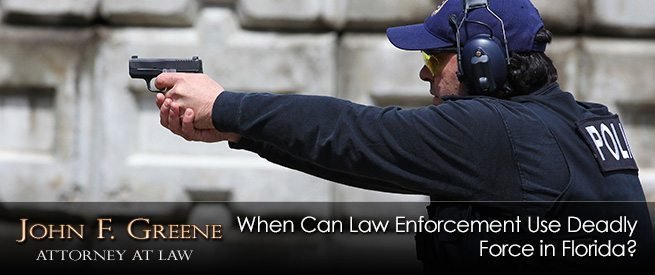
Two enterprising reporters for the Daytona Beach News-Journal, Skyler Swisher and Frank Fernandez, explored thousands of public documents and discovered that in Florida, law enforcement shot persons 249 times between 2013 and 2014. That is shooting someone once in a three-day period on average. There are no records for incidents under review, so the reporters combed media reports and found 53 incidents in 2015 as of November 8.
Swisher and Fernandez found that 55% of these shootings involved armed suspects. While the officers involved likely acted bravely under those circumstances, just under half of the incidents where the victims were not armed with a deadly weapon. In one infamous case, the victim was armed only with a stapler.
The fatal shooting of Dominic Fuller
Dominic Fuller was not a nice man if we are to judge by his rap sheet. Police arrested him 17 times on 32 charges including some charges involving violence. On September 21, 2015, Fuller sat in a stolen vehicle. deputy sheriffs approached regarding a shooting under investigation. Fuller ran from the scene and the police chased him through the neighborhood. The deputies claim Fuller told them he had a gun. Eventually, Fuller took refuge inside a house where officers cornered him. Fuller emerged but did not confront the police. Law enforcement claims Fuller raised his hand, and that appeared to hold a black and chrome pistol. A deputy shot him five times, eventually killing Fuller. A search of the crime scene did not reveal a weapon, only a black stapler.
When are the police justified in using deadly force?
This may sound like a clear case of police misconduct. However, the Florida statute governing police misconduct suggests a Florida court would see the case as cut and dried. The statute has codified the Supreme Court decision Graham v. Connor 490 U.S. 386 (1989) regarding the parameters of law enforcement’s use of force. The Court held that “all claims” of excessive force – including deadly force – must be addressed by the Fourth Amendment’s “objective reasonableness” standard.
Graham finds that these excessive force cases must be judged through the eyes of a reasonable officer on the scene, one with similar expertise in law enforcement. Factors used to determine whether the force used is reasonable includes “the severity of the crime,” the degree to which the suspect poses a threat to other persons and/or law enforcement, and whether the suspect is resisting or running.
§ 776.05, Fla. Stat. states that an officer is justified in the use of force if the officer reasonably believes force is necessary to protect themselves or others during an arrest, to stop a felon fleeing from law enforcement, or if the officer reasonably believes the fleeing felon poses a threat to others. § 776.06 defines deadly force as force that is likely to cause great injury or bodily harm.
For the late Mr. Fuller, no one could look back at the crime scene and find that he didn’t have a weapon in fact and so judge the deputy’s conduct unlawful. What is important regarding whether an officer justifiably uses deadly force is what a reasonable officer in such circumstances would have done, whether it was reasonable in the heat of things for the deputy to believe Fuller had a weapon.
The Florida statute and Graham suggest that analysis of circumstances of Fuller’s death would exonerate the Deputy who killed Fuller. Yet, some scholars believe the Court in Graham failed the public by refusing to further define the reasonableness standard. Law professor Rachel Harris calls for greater guidance from the Court and more specificity regarding under what circumstances an officer may use deadly force.
However, municipalities prefer to settle cases they are likely to lose or garner the executives bad publicity. Cases where law enforcement actions fail the objective reasonableness standard are less likely to reach the Court, and the law of the land may remain as is.
Call the offices of Attorney Greene for assistance with police brutality
Those of us who encounter law enforcement or face arrest run the risk of an officer using force against them no matter the severity of the charge causing the interaction. The ubiquity of camera-equipped phones and a population tiring of law enforcement excess make it likely that such circumstances are going to be exposed.
If you suffer police brutality or excessive force at the hands of law enforcement you may need legal advice or representation from a qualified Florida defense attorney.
Contact John F. Greene, Destin defense attorney to receive the representation and legal advice you need for a proper legal defense. Call 850-424-6833 or schedule a consultation online. Attorney Greene represents drug case defendants in Okaloosa, Walton, and Bay Counties in Florida.









